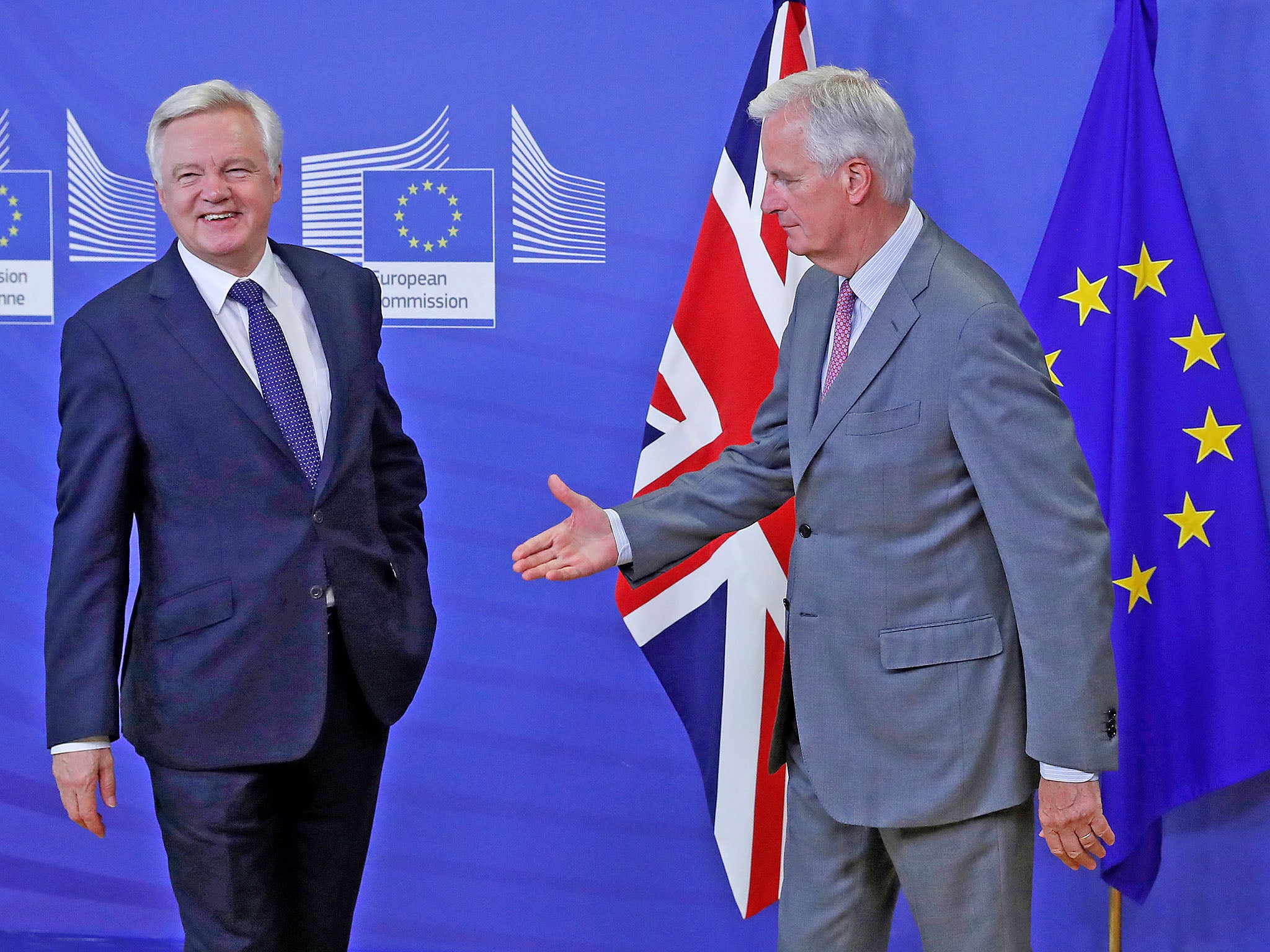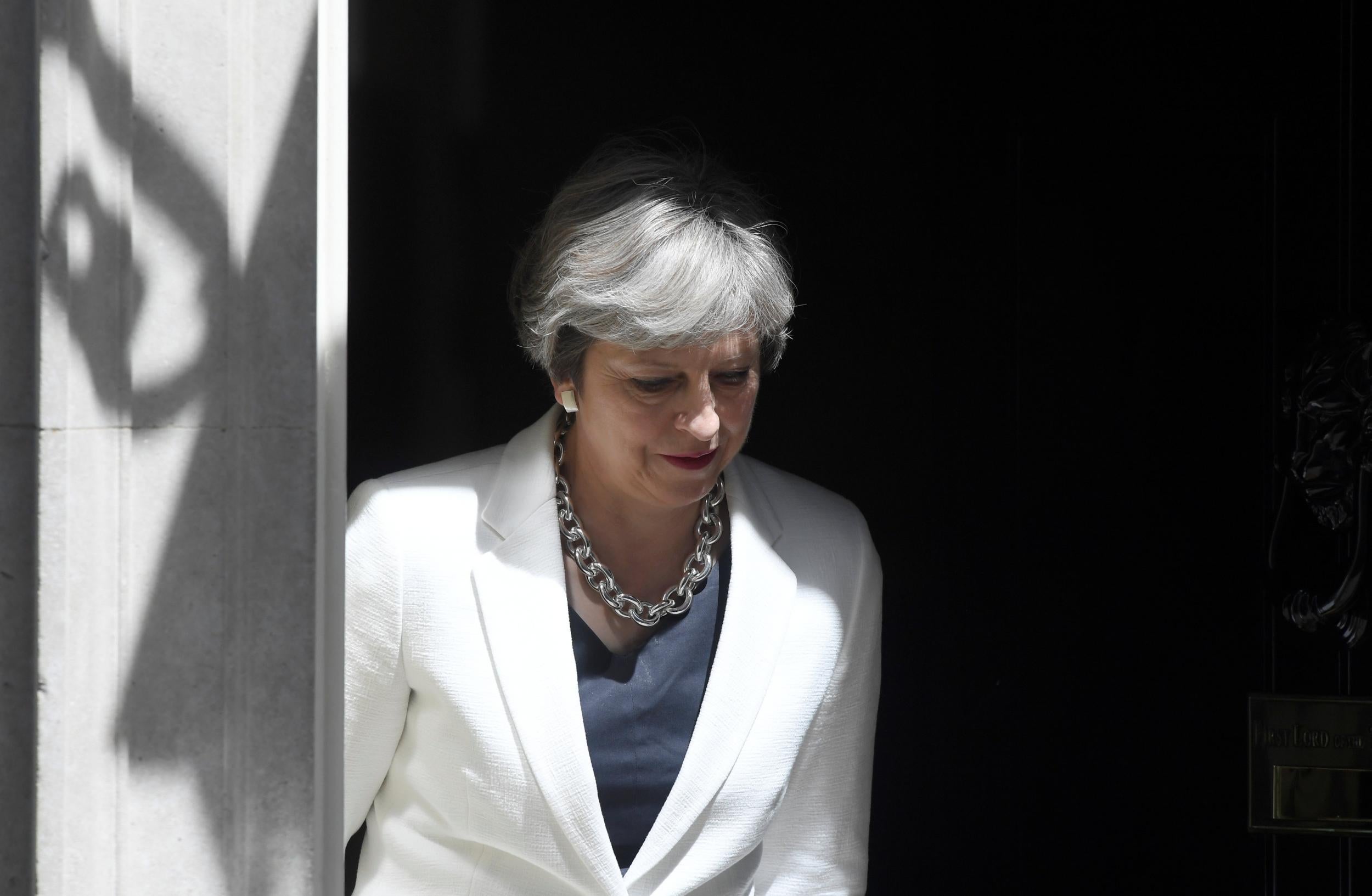Your support helps us to tell the story
From reproductive rights to climate change to Big Tech, The Independent is on the ground when the story is developing. Whether it's investigating the financials of Elon Musk's pro-Trump PAC or producing our latest documentary, 'The A Word', which shines a light on the American women fighting for reproductive rights, we know how important it is to parse out the facts from the messaging.
At such a critical moment in US history, we need reporters on the ground. Your donation allows us to keep sending journalists to speak to both sides of the story.
The Independent is trusted by Americans across the entire political spectrum. And unlike many other quality news outlets, we choose not to lock Americans out of our reporting and analysis with paywalls. We believe quality journalism should be available to everyone, paid for by those who can afford it.
Your support makes all the difference.The European Union has accused Britain of engaging in “magical thinking” over its approach to Brexit, specifically what should be done with the Northern Ireland after the UK leaves the bloc.
Briefing journalists in Brussels on Friday a senior EU official said the UK must not use the Northern Ireland process as a “bargaining chip” in Article 50 negotiations, which was set to restart next week.
The Government put out a position paper last Wednesday about how it believes the question of Northern Ireland should be solved once Britain leaves the EU.
It suggested there should be no border posts on Northern Ireland’s border with the Republic of Ireland border, which has almost 300 crossing points, but that a mix of technology and physical checks should ensure big businesses were complying with customs rules.
Labour at the time branded the idea a “fantasy frontier” and said the proposal lacked practical detail.
Speaking to reporters, the senior EU official also dismissed the idea.
“The decision to leave was the UK’s decision, not the decision of Ireland and not the decision of the EU and the UK has to take responsibility for that,” he said.
“What we see in the UK paper is a lot of magical thinking about how the border could work. The UK paper is very good on aspirations but short on workable solutions.”
He also claimed progress in talks, which are now on their third round, had been slow because of a “lack of substance” from the UK side.
But a UK source described the EU’s briefing as “puzzling” and said the comments indicated that the Commission negotiators did not under “the human costs behind the hard-won progress in Northern Ireland”.
Ireland is a member of the EU and its customs union, which means it forms a single customs area and common external tariff with the whole European Union.

Theresa May has signalled that Britain will be leaving the EU customs union when it leaves the EU, which means the border between Ireland and Northern Ireland will be an EU border and customs frontier.
The situation is complicated because a hard border between Northern Ireland and the Republic of Ireland is uniformly opposed by almost all politicians and public figures on both sides of it. The current settlement is seen as key to the peace process in the region; Northern Ireland voted to remain in the EU, unlike the rest of the UK.
The Government has struggled to articulate a position that prevents a hard border between the two areas with Britain outside the EU customs union, however.
A UK source said: “This briefing is puzzling. We have already published a paper on Northern Ireland which sets out our clear position, as well as how we can make swift progress on protecting the Common Travel Area and upholding the Belfast Agreement in all its parts.
“It’s self-evident that discussions around the future of the Irish border will require a conversation about the future partnership between the UK and EU, and we agree with the Taoiseach when he says this is common sense.
“We look forward to reading the Commission’s response to our paper, but this type of language suggests they don’t properly understand the sensitivities or appreciate the human costs behind the hard-won progress in Northern Ireland.
“This is not some sort of game with bargaining chips.
“The third round of negotiations begin next week and we enter those discussions ready to make progress.”
At the time of the release of the paper, the Prime Minister said: “No one voted to end the special ties between the UK and Ireland, or to undermine the unique arrangements between Ireland and Northern Ireland which have underpinned the peace process and have been in place well before our membership of the EU.”

Join our commenting forum
Join thought-provoking conversations, follow other Independent readers and see their replies
Comments